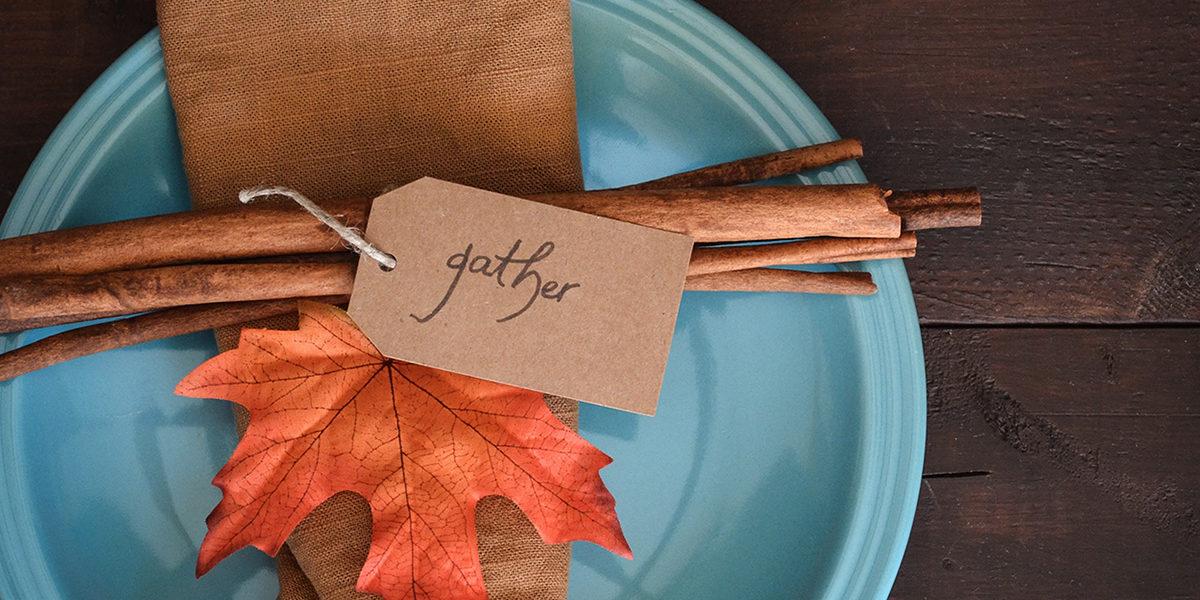Thanksgiving does not extend equal abundance to all people. While some enjoy a loving family feast of turkey and pumpkin pie, others agonize over how to make it through the day. The unique challenges posed by the holiday season can be especially destabilizing for those in early recovery. If you’re wondering how to make it through your holiday gathering without a drink or a drug, check out these eight tips for a sober Thanksgiving:
- Be honest with yourself. Honesty is one of the most significant components of the recovery process; it helps you break through denial and evaluate your motives. Honesty will also help you survive the holiday season with your sobriety – and sanity – intact. This means asking yourself: “Can I manage my traditional Thanksgiving plans?” It’s okay if your Thanksgiving in sobriety looks different than holidays past. It’s also okay to acknowledge if your family situation is unhealthy for your emotional wellbeing. You alone are responsible for protecting your sobriety, but you are not responsible for how others respond.
- Prepare an exit strategy. You may decide that you can, in fact, handle your traditional Thanksgiving celebration. Or, alternately, you may choose to try something new. In either case, it’s important to have a safety plan. If you feel uncomfortable, make sure you have a way out. Park your car in a spot that cannot be blocked by other vehicles or pre-arrange a ride home. If you’re nervous about how much you can handle, you can also inform your host that you are only able to stay for an allotted period of time. Early recovery is fragile. Advance preparation will sustain your balance when life catches you off guard.
- Keep your support network on speed dial (or invite them to dinner!) Do your in-laws drive you insane? Does your mother nitpick your appearance? Do you have a crotchety aunt who knows just how to push your buttons? If so, take a deep breath and excuse yourself from the room. Give yourself a ten minute break to call or text a sober friend. Alternately, invite a supportive person to attend dinner with you. He or she can always kick you under the table if you need help biting your tongue.
- Stay busy. If you occupy yourself with baking dessert or clearing dishes, you are less likely to engage family members who are renowned for picking fights. If your family situation is a threat to your sobriety – or you are facing a holiday of isolation – staying busy is just as important. Twelve step fellowships utilize a phrase to describe a common holiday relapse trapdoor; they call it “stinkin’ thinking”. This type of negative thinking is born of isolation and can be exacerbated by the stress of the holiday season. You may get stuck focusing on what you don’t have or what’s not going right. One way to avoid the “stinkin’ thinking” trap is to host a “Friendsgiving”. Invite your friends or recovery peers over for a meal. You never know how many people are in the same boat. Hallmark movies may romanticize the holidays, but many people experience unhealthy family dynamics or simply don’t have anywhere to go. Another way to fend off isolation is to attend a 12 Step Alcathon. Holiday alcathons feature a community meal and round the clock meetings. You can also check your local recovery community center for holiday events.
- Plan your day around a recovery meeting. On Thanksgiving – and year round – you have a choice: You can make time in your day to treat your substance use disorder or you can neglect to address it. When you make time to focus on your recovery, you ground yourself in positive thinking. Your day is bound to go smoothly when you are firmly rooted in a positive, recovery oriented mindset. Other people may behave negatively, but you will be able to respond from a healthy place. Furthermore, even if you struggle to connect with your relatives, a recovery meeting guarantees you will connect with people who understand exactly what you’re going through.
- Bear in mind that other people are sick, too. You don’t have to suffer from substance use disorder to maladaptively interact with others. Addiction is a family disease. This means that every member of the family assumes a role in response to one or several family members’ active substance use. These roles lead to overall disorder in the family system. However, just because one person is still engaging from a place of pain does not mean you need to engage on the same level. If your loved one is not a threat to your wellbeing and sobriety, you may even be able to lead by example and act as a beacon of hope for their emotional recovery.
- Keep your eye on the ball. Giving thanks is the reason for the season. If someone insists on being a thorn in your side, you can always make a different plan for the rest of the day – or the following year! Don’t lose sight of your blessings based on one negative circumstance.
- Ask for help. There’s no doubt about it – the holidays are hard. Despite your best efforts, you may still find yourself feeling overwhelmed, lonely, or depressed. If that’s the case, please reach out for help. Let a caring friend know how you are feeling or seek the assistance of a counselor or recovery professional. There are people out there who care about you – people you may not even know. Remember that a problem shared is a problem halved.
Do you need help this holiday season? We are here for you. Call (888) 649-1149 or contact us here.
Autumn Khavari is the Process Recovery Center’s in-house writer. She received an education in Substance Use Counseling from Beal College in Bangor, Maine.



